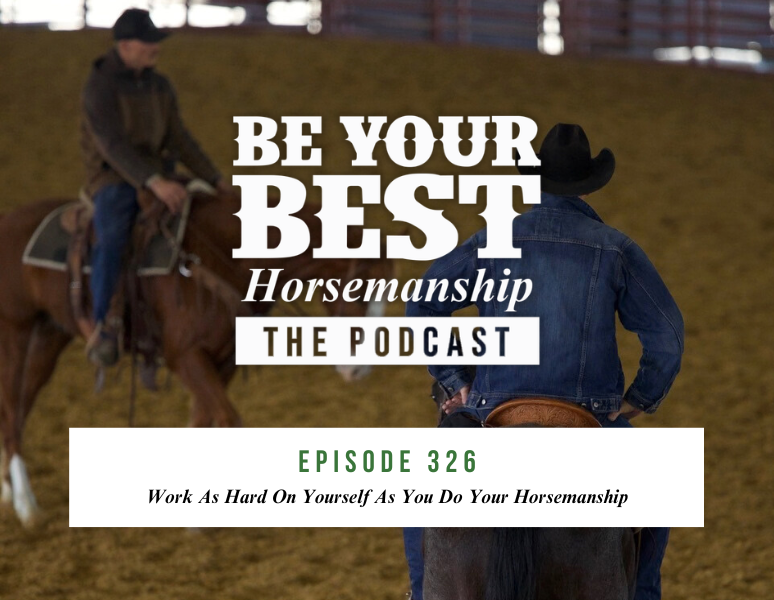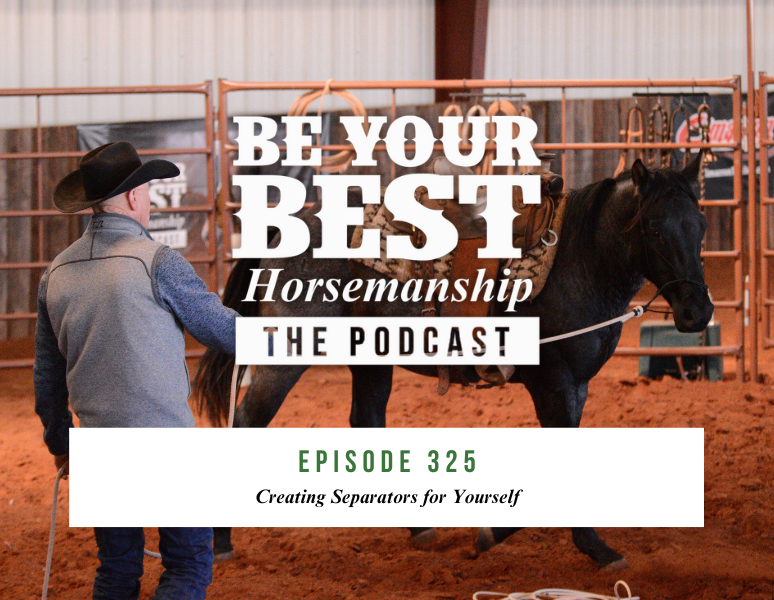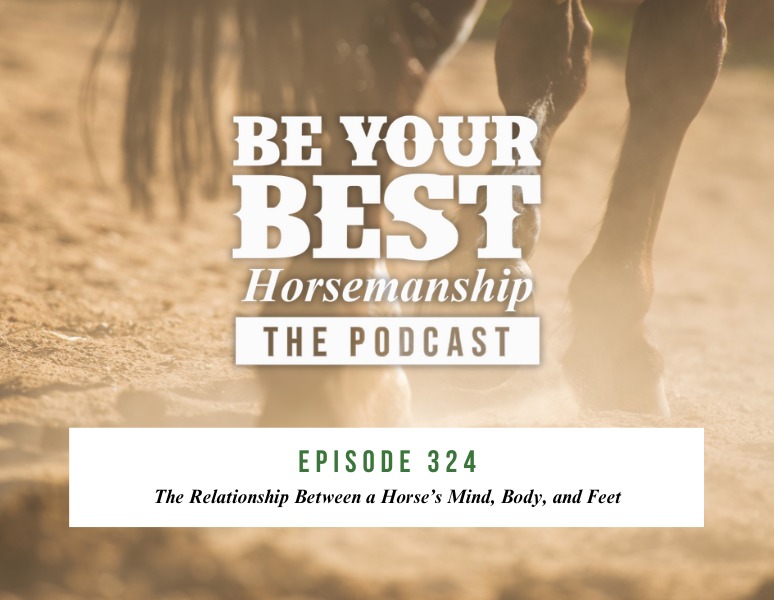Ep 175: Finding Fulfillment in the Process
Some of the most successful people in the world have mastered one key mindset shift:
They have learned how to find fulfillment in the everyday process, not just in the final product.
Each month, I host a mentorship call with members of our online training community, and during these calls, we talk a lot about the ups and downs of the training process – more specifically, how to overcome challenges and continue experiencing fulfillment throughout various stages of the training journey.
One of the topics that came up in our last call was from a very talented trainer out in California. She has been working with a new horse for the past few months, and when she got the horse, it had some challenges with being reactive. Since she’s gotten the horse, it’s had a lot of improvement with its performance, but in certain situations, it has a tendency to freeze up.
With this particular horse, there is likely some sort of trigger that is engaging that “fight or flight” response that causes the horse to freeze up. When horses are in self-defense or self-preservation mode, one of their go-to responses is to freeze up. If you push them long enough, they’ll eventually switch from “freeze” to “fight,” and that can become a safety issue for you and anyone around you very quickly.
The tricky part about overcoming reactive triggers is that we never really know exactly where those triggers came from in the first place. Unless we are the ones to raise and ride the horse every day of its life, we will likely never know the full story or fully understand where the horse’s triggers come from. And most of the time, these triggers are not due to the fault of any one person. It’s often a culmination of environmental or behavioral events that, over time, condition a horse to produce a reactive response.
In this instance, this particular horse is used for barrel racing. Regardless of the discipline you’re using your horse for, it’s important to understand that the run itself usually isn’t what causes the reactive response. Instead, it’s the anticipation of the run that triggers the “fight or flight” response.
When you are faced with a reactive horse, you need to work on creating a habit, or a positive trigger, that you do every time before you begin a run and create a situation where the horse’s mind is engaged properly. It can be something as simple as tipping their nose and walking in a circle. The goal is to create a simple habit that can result in a one step release-and-reward process–something that has the horse seeking the immediate gratification of that release.
When I am working on establishing positive triggers, I want to give the horse an easy opportunity to get the release. I’m not looking for punishment or challenging the horse to perform a complex maneuver; I’m trying to give them an easy win. By giving that horse a little confidence boost, I can quickly engage the thinking side of the horse’s brain and gain a little bit of trust in a split second.
This situation is an excellent example of creating fulfillment throughout the training process. We don’t want to only provide our horses with satisfaction when they meet the end result we are looking for. We want to continually reinforce confidence at each stage of the training process.
I think this principle of finding fulfillment throughout the process is not only applicable to horses, but in every aspect of our lives. Whether it is your career, your health journey, or any other area of your life, if you are only satisfied when you reach the end result, you are almost guaranteeing disappointment.
Now, this is not to say that you will not achieve satisfaction once you reach that end goal. However, in my life, I’ve noticed that the goalpost tends to move at the pace that we achieve. We set our sights on one milestone, thinking that when we reach it, we’ll finally feel fulfilled. But once we get there, a new goal quickly replaces the old one. We are constantly seeking a level of gratification that can never be achieved. When we operate with this results-oriented mindset, we tend to overlook the fulfillment that can be found in the everyday tasks we perform to get to that end result.
One of my favorite personal development experts, James Clear, author of Atomic Habits*, has a great quote that relates to this concept. He says: “To crave the result, but not the process, is to guarantee disappointment.” In other words, if you’re not willing to go through the process joyfully, don’t crave the joy and satisfaction that accompanies the results.
The takeaway from this episode is, fall in love with the process. I’ll leave you with this quote from Dabo Swinney that says: “97% of the time, we’re practicing. 3% of the time, we’re executing.”
That’s why it’s so important for us to learn to enjoy that 97%. We might think that the gratification lies in the 3%, but if we can learn to appreciate the 97%, the entire process becomes so much more fulfilling. Understand what the goal is and what results you are aiming for, but don’t neglect to enjoy the process it’s going to take to get there.
–
*Affiliate Disclaimer: As an Amazon Associate, I earn from qualifying purchases completed through the link(s) provided above.
“Be Your Best Horsemanship” is brought to you by Silver Lining Herbs, Classic Equine, Martin Saddlery, Better Horses Network, Purina, Healthycoat, CINCH, Starbar, and Clarifly. These brands have been part of the Phil Haugen Horsemanship team for many years, and their products continue to play an integral role in the success of our performance horse training program. To support these brands, visit our Sponsors tab.




